“We can all breathe easier knowing that fracked gas has suffered a significant setback!”


“We can all breathe easier knowing that fracked gas has suffered a significant setback!”

“His records show consistent support for extreme legislation and nullifying of standards that have been put in place to protect the environment and our public health and safety.”

“This $5.5 billion, 42-inch diameter, 600-mile pipeline carrying fracked gas under high pressure would run from West Virginia through Virginia and across Eastern North Carolina, threatening pristine forests, headwaters, hundreds of streams, as well as many farms and communities.”

“The Big Energy companies that put forth politicians to push pillaging and polluting practices use ‘moral/religious’ issues as a means to divide people.”

Natural gas will dethrone coal as the fossil fuel generating most of WNC’s electricity when Duke Energy’s new Lake Julian plant goes online in 2020. But how does natural gas get to this area, and where does it come from? Though tracing the gas molecules to their source is tricky, Xpress found that much of the area’s gas supply comes from hydraulic fracturing, and new pipeline projects are in the works to bring more fracked gas into the region.

“Instead, we need Duke’s support for more renewables, and they could start by emulating Florida’s example: installing a solar power station that only uses natural gas as a backup.”
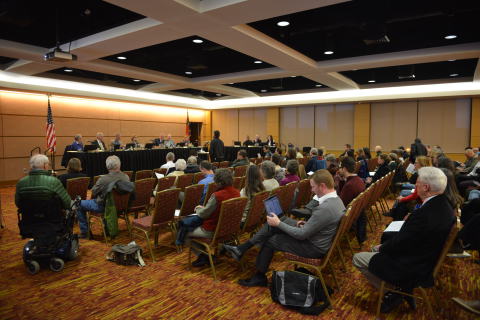
On Jan. 13 — hosting their first meeting of 2015 in the U.S. Cellular Center’s Banquet Hall because of water damage at City Hall — Asheville Council members adopted an anti-fracking resolution and denied a rezoning request for properties at E. Chestnut and Madison Avenue.

After a major water line break that flooded the 6th floor of City Hall and put a stop (for now) to elevator service, Asheville Council members will hold their Tuesday, Jan. 13, meeting in the U.S. Cellular Center’s banquet hall.
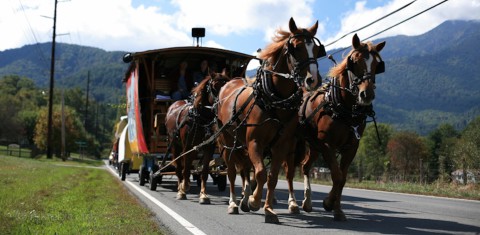
The Rural Academy Theater will “clop its way into your backyard and heart,” claims a press release by the horse-pulled production’s organizers. This year, the annual mobile mini-circus includes a slapstick interpretation of North Carolina’s pro-fracking legislation, a depiction of human presence on a geological timeline and an evening showing of Georges Méliès’ 1902 silent […]
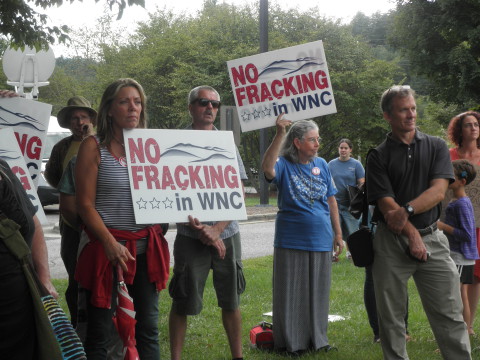
Don’t allow fracking in Western North Carolina. That was the clear message from the nearly 90 people who spoke to members of the state Mining and Energy Commission on Sept. 12 in Cullowhee. They were voicing their concerns at the last of four public hearings on proposed rules for hydraulic fracturing, a drilling method that […]
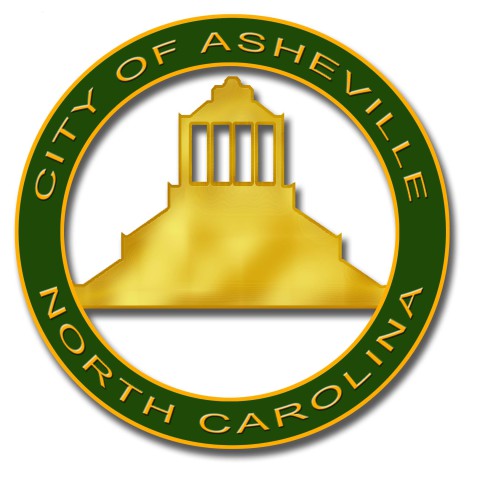
Opposing priorities between Asheville and state government took center stage Aug. 27, as Asheville City Council heard an update on recent actions by the General Assembly and approved a list of actions it would like lawmakers to take next year.
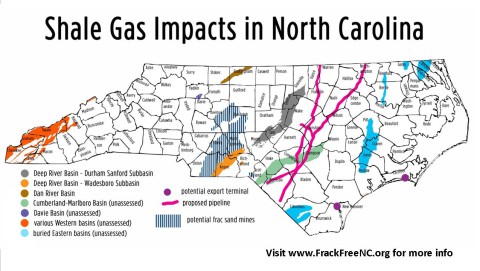
After passage of the Energy Modernization Act in June opened the door to fracking in North Carolina, the state’s Mining and Energy Commission is accepting public comment through Sept. 15 on the draft rules for regulating the controversial practice.
Concerned or excited about the prospect of increased oil and gas development in Western North Carolina? The North Carolina Mining and Energy Commission has scheduled a public hearing for Sept. 12 in Cullowhee and welcomes your feedback on proposed rules that could help pave the way for hydraulic fracturing – also known as ‘fracking’ – […]

This weekend brings offers workshops, egg hunts, local music and more. So get off the couch, drag those summer clothes from the attic and embrace the first hints of spring. As always, these events are budget friendly and certain to leave your wallet thick and full.

On Monday and Tuesday, July 25 and 26, North Carolina legislators overrode four closely watched gubernatorial vetoes, including bills that create medical liability reforms, set up sweeping state regulatory reform, establish new rules for Medicaid and health care providers, and make significant changes in the Employment Security Commision. Late Tuesday, in a party line vote of 67-52, the House failed to override the veto of HB 351 (Restore Confidence in Government), which would require photo ID for voting, but the bill remains alive through passage of reconsideration vote. Of the remaining bills considered for potential override, HB 854 (Abortion — Woman’s Right to Know) passed in the House and moves to the Senate.